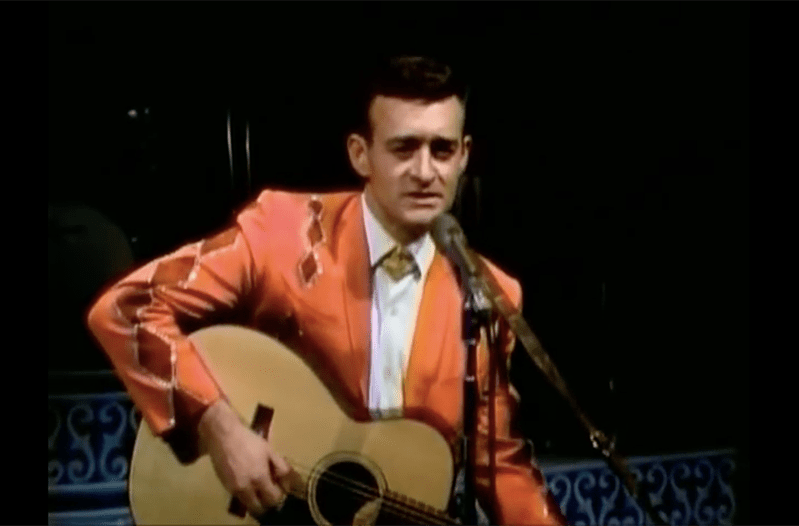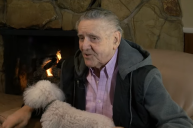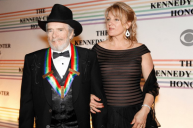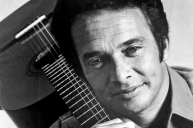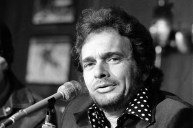You might not know the name Wynn Stewart but, almost certainly, most of your country music idols do, and they'd be quick to tell you that they owe Winford Lindsey Stewart a debt. The progenitor of the Bakersfield Sound inspired the likes of Merle Haggard and Buck Owens and is, both directly and indirectly, responsible for some of country music's greatest hits.
Wynn was born in Missouri at the height of the Great Depression in 1934 to a sharecropping family. He grew up with dreams of being a professional baseball player, but a hand disease and his slight stature put that childhood dream well out of reach. After World War II, Wynn's family moved to California. When he was in high school Wynn formed a band with friends and started playing clubs around the state. It was during that time he met steel guitarist Ralph Mooney. Together with guitarist Roy Nichols and bassist Bobby Austin, the band gained enough notoriety to get Wynn a deal at an indie record label.
Intro Records inked Wynn to a deal and he released two records with the label: "I've Waited a Lifetime" and "Strolling." It was "Strolling" that ultimately launched Wynn to his next level after the song caught the attention of one of Wynn's biggest idols, Skeets McDonald. McDonald liked the record so much he got Wynn an audition with the famous Capitol Records, which Wynn nailed. Now signed to one of the biggest record labels in the world, Wynn got back to recording. In 1956, Wynn scored his first major hit with "Waltz of the Angels". The song peaked at number 14 on the country charts.
Unfortunately, that would be his only hit for Capitol Records at the time. He released his last single for the label a year later after none of his other songs found much success.
Wynn had other options, though. In the early 1960s, he was part owner of a Las Vegas nightclub called Nashville Nevada. At the club, he performed six nights a week and also hosted a TV show. It was there that Wynn's country influence really took hold. While Wynn was away for a while in 1962 a young man named Merle Haggard sat in with his band and when Wynn returned he liked Haggard so much that he invited him to be the band's regular bass player.
https://www.youtube.com/watch?v=GuYE-S6RqB8
Meanwhile, even though his time at Capitol Records didn't work out, Wynn regrouped and signed with Jackpot Records, which was a subsidiary of Challenge Records. While there Wynn experimented with all sorts of different styles, including pop and rockabilly. Ultimately it was his song "Wishful Thinking" that became Wynn's breakout hit in 1960, with the song peaking at number 5 on the charts.
Wynn also scored hits with "Big, Big Love" and "Wrong Company," a duet with Jan Howard. Not long after that Capitol Records came calling again and Wynn was back with the label.
It seemed like history was repeating itself for Wynn, as the first couple of singles he released for the label didn't move the needle much, but then came "It's Such a Pretty World Today" which would ultimately be the biggest hit of Wynn's career, reaching number one on the country charts. It went on to become a gold record and was named country music Song of the Year.
By the 1970s Wynn was again on the move, recording singles for RCA Records and Atlantic Records, his hits included "Paint Me a Rainbow." Finally, Wynn then moved to Playboy Records, for whom he recorded the top 10 hit "After the Storm." His other hit for Playboy Records was a cover of the Merle Haggard hit "Sing a Sad Song" which, ironically, Wynn had written and given to Haggard years earlier.
Finally, Wynn started his own record label, WIN Records, and released his last hit, "Eyes as Big as Dallas." In the mid-80s Wynn was in the midst of launching a comeback with a tour and a new album. But while on tour in 1985 Wynn died suddenly of a heart attack. After his death the song "Wait Til I Get My Hands on You" became a minor hit.
Ultimately though, Wynn will forever be remembered for pioneering the new west coast sound that came define many genres of country music: The Bakersfield Sound.
Now Watch: 10 Legendary Instruments of Country Music
